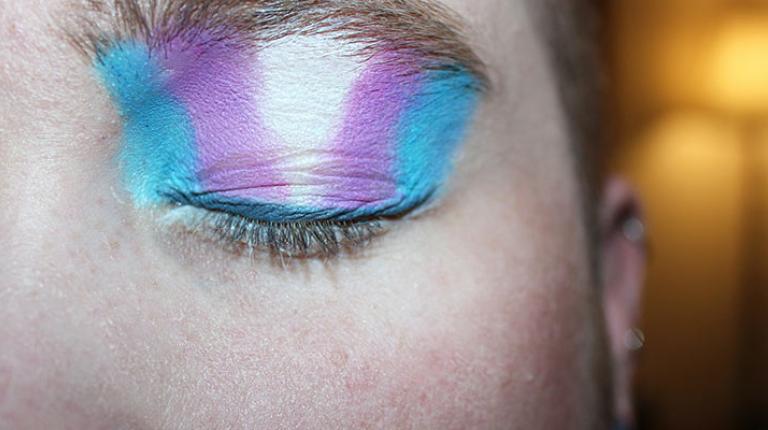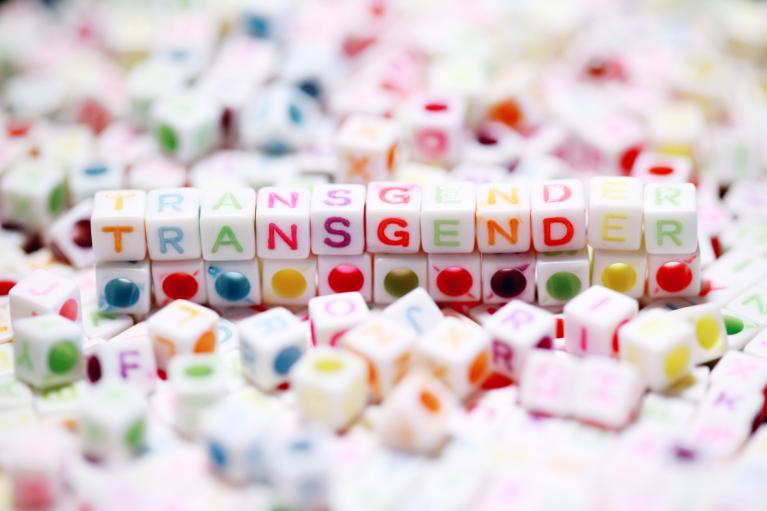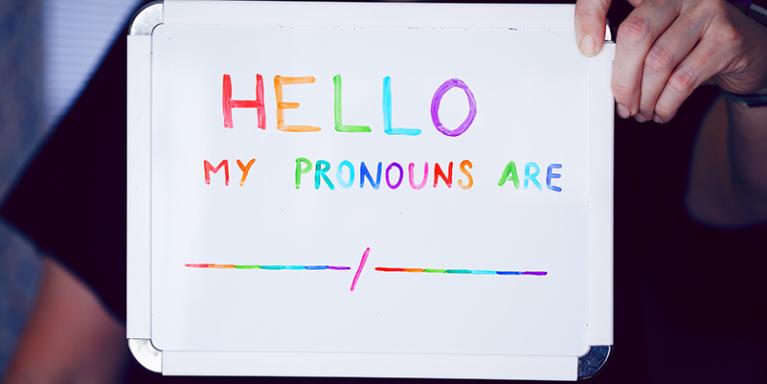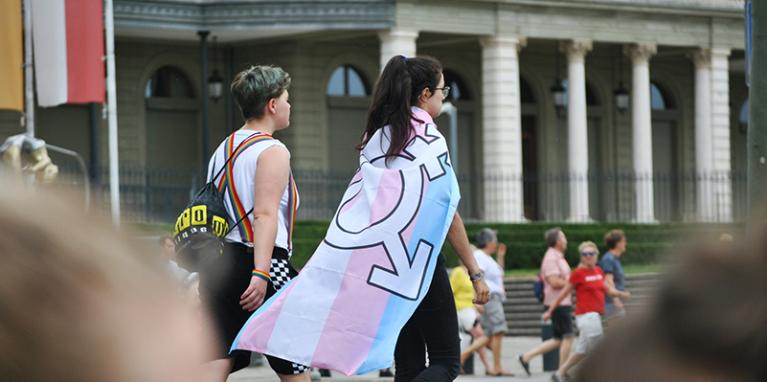7 ways you can be a trans & gender diverse ally
Wondering how to be a good ally to trans and gender diverse people? Check out these helpful tips, developed in collaboration with VU’s Pride and Ally Network (formerly the Ally Network).

1. Listen, acknowledge & respect
It’s OK if you don’t have a perfect understanding of an individual’s identity or about trans and gender diverse (TGD) issues in general. It is important not to judge anyone by their gender identity, or to deny that their gender identity exists.
A way to show respect is to listen to TGD people and recognise their experiences. Too often narratives about trans and gender diverse people originate outside of the community, and information can be damaging or Incorrect.
2. Don’t make assumptions about how people physically present
A person doesn’t have to present physically in a certain way to be trans or gender diverse. TGD people may or may not adhere to gender norms around physical presentation and dress. Some people choose to highlight an androgynous or playful gender presentation, whereas others do not.
It is not possible to tell if a person is trans or gender diverse simply by appearance. Some people live their whole lives without anyone knowing they are transgender or gender diverse. You can support TGD people by encouraging them to present in whatever way feels most comfortable for them and best reflects their gender identity.

3. Educate yourself
There are plenty of resources on the internet for those who want to know more about TGD issues and lives. Transgender and gender diverse people are often the subject of casual curiosity and it can feel like a burden having to continually educate others. By educating yourself and those around you, you can lessen the load.
4. Don’t out people without their permission
A TGD person’s decision to be publicly 'out' is theirs alone and can vary in different contexts. Outing someone without their permission can put them at risk of ridicule or violence and is a serious privacy breach. It should never be done, even if you think they are out to everyone they know.
5. Get your head around pronouns
Some people may prefer pronoun sets other than ‘she/her’ and ‘he/him’. Some gender-neutral pronouns sets include singular 'they/them', 'zie/zir', 'sie/hir' and 'ey/eir'. Normalising alternative pronoun use is a way of being inclusive of the TGD community. In situations where you’re unsure, you could listen to how the person refers to themselves, or simply use their name.
You can help by introducing your own pronouns at the start of meetings or gatherings, wear a name badge that includes your pronouns or include your pronouns in email signatures or your social media profiles.
It is distressingly common for TGD people to be publicly misgendered, either by someone using a former name or by using the wrong pronoun. If you accidentally do this, thank the person who corrects you or correct yourself, and move on. Take steps to remind yourself of the proper form of address for next time.
For more, read our guide to getting pronouns right.

6. Use inclusive language
TGD people are often misgendered and side-lined through the application of highly gendered language and signage. Forms of address like ‘ladies and gentlemen’ can make gender diverse people feel othered and ignored. Consider using gender neutral language when addressing a group, e.g. 'Good afternoon everyone' or, 'Welcome folks' when beginning a meeting, or 'Dear colleagues' for a mass work email.
Consider the following when asking a trans person a question: 'Would I feel as comfortable asking this question of a cis person?' If the answer is no, it is likely that your question is inappropriate and may cause offence. A person's privacy is important. Examples of inappropriate questions are questions concerning their physical appearance, genitals, surgical status or sex life.
7. Be a champion
TGD people and identities are often subject to public attack through forums such as mainstream media, social media and political debate. They are also at higher risk of being targeted for bullying, harassment and violence. It is often left up to the individual to defend themselves. Dealing with constant attacks becomes exhausting.
You can be an ally and stand up for TGD people when the opportunity presents itself. It may be a casual conversation where you can correct someone for misgendering another, it could be challenging bigotry in print or online media, or it could be attending an event like Trans Day of Remembrance. There are many ways to publicly support your trans friends and colleagues through advocacy.

Find out more about the VU Pride & Ally network
Joining the VU Pride and Ally network signals to your colleagues that you are serious about supporting TGD people and the wider LGBTIQA+ community in your workplace. You will also have access to training sessions and a strong network of supportive people to increase your awareness of issues affecting TGD people.